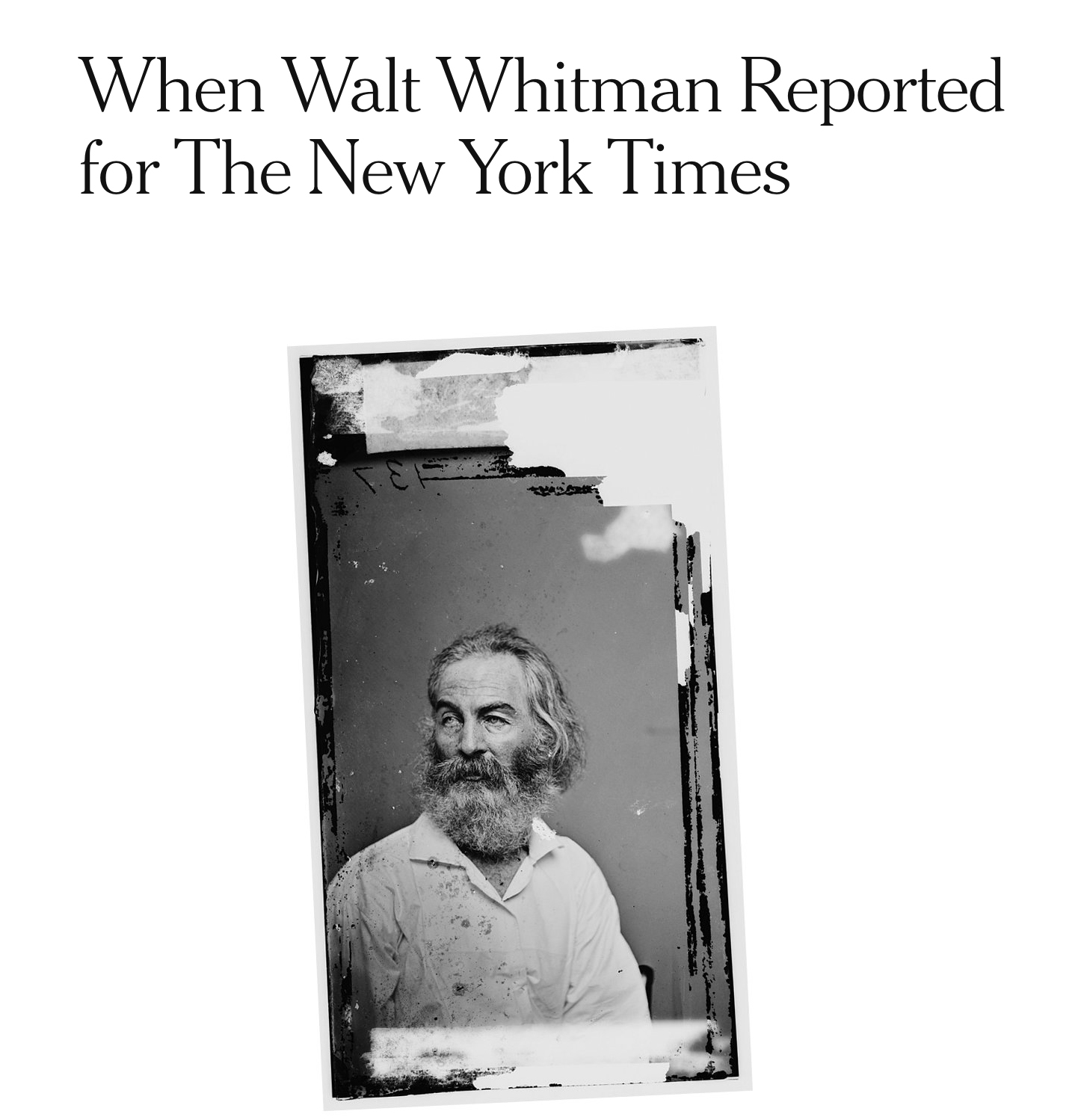
“Reporting on Abraham Lincoln’s second inauguration just over a month before Robert E. Lee’s surrender, a New York Times reporter juxtaposed the scene of the inaugural ball that took place in the patent office in Washington to his memory, two years earlier, of when the same location housed the wounded and dying.”
“Tonight,” he wrote. “Beautiful women, perfumes, the violins’ sweetness, the polka and the waltz; but then, the amputation, the blue face, the groan, the glassy eye of the dying, the clotted rag, the odor of the old wounds and blood and many a mother’s son amid strangers, passing away unintended there.”
“That reporter was the poet Walt Whitman. During the Civil War, The Times employed a large staff to cover the war all across the country, sending information with unprecedented speed by way of railroad and telegraph. The rapidly evolving and war-torn country provided tales of journalists that were as rich as their reports.”
